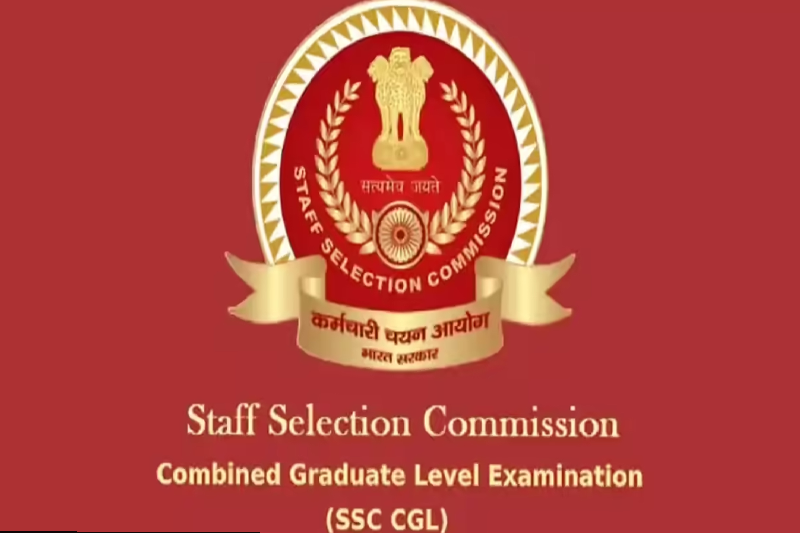
SSC CGL 2025 to Be Held in Single Shift: Major Reforms Announced for Fairer, Smoother Exam Process
The Staff Selection Commission (SSC) has announced a sweeping set of reforms for the Combined Graduate Level (CGL) Examination 2025, aimed at improving transparency, fairness, and candidate convenience. These changes, confirmed by SSC Chairman S. Gopalakrishnan in an interview with Navbharat Times, are expected to streamline the examination process, address technical and logistical issues, and provide a more equitable environment for lakhs of aspirants across India.
Key Reform: CGL 2025 to Be Conducted in a Single Shift
One of the most notable changes is that the SSC CGL 2025 exam will be held in a single shift, rather than the traditional multiple shifts spread across several days. This move directly addresses longstanding concerns about inconsistencies in question paper difficulty levels across shifts.
“Conducting the exam in one shift ensures a uniform experience for all candidates,” said Chairman Gopalakrishnan. “It removes doubts about paper variation and ensures every candidate competes on a level playing field.”
This change will significantly reduce the need for complex normalisation processes that were previously used to equalise scores between different shifts.
Exam Centres Within 100 KM Radius of Candidates
Another critical issue faced by candidates in previous years was the allocation of far-off exam centres, sometimes hundreds of kilometers away from their home districts. To address this, the SSC has announced that from 2025 onward, exam centres will be allotted within a 100 km radius of the candidate’s registered address.
Currently, about 80% of candidates receive nearby centres, and the commission now aims to raise this number to over 90%, drastically reducing the financial and physical burden on aspirants.
This reform is especially crucial for rural and semi-urban candidates, who often struggle with transportation and accommodation when required to travel far for exams.
Aadhaar Verification Now Mandatory
In a move to tighten exam security and eliminate impersonation and fraud, the SSC has made Aadhaar-based verification mandatory for the CGL 2025 exam. This will help confirm candidate identities more accurately and reduce issues related to mismatched documentation or fraudulent attempts to appear on someone else’s behalf.
Aadhaar authentication will be integrated at both the application and exam centre levels, ensuring that the entire process remains secure and streamlined.
Shift-Wise Normalisation System Introduced
Though the exam is now set to be held in a single shift, the SSC has also formalised a shift-wise normalisation system. This scoring method adjusts the marks of candidates in case exams are conducted in multiple shifts in the future.
The system accounts for differences in question paper difficulty, ensuring no candidate is unfairly penalised or advantaged based on the shift they were assigned. This model, already used by various national-level exams, ensures statistical fairness in score calculation.
While normalisation may not be necessary for the 2025 cycle due to the single-shift format, its inclusion in the framework signals the SSC’s intent to build a more robust and equitable examination ecosystem for the long term.
Vendor Restructuring for Better Exam Management
To enhance exam execution and accountability, the SSC has introduced a vendor restructuring model, wherein the responsibilities for exam-related tasks are now divided among four specialised vendors:
- One vendor for exam centre management
- One vendor for security arrangements
- One vendor for managing online application processes
- One vendor for question paper preparation
Importantly, the question paper preparation will now be directly supervised by the SSC itself to maintain confidentiality, consistency, and quality.
This segmented approach allows for focused execution, reduces dependence on a single vendor, and minimises the risk of errors or manipulation during the examination lifecycle.
Addressing Past Candidate Concerns
The reforms come in response to a series of issues reported by candidates in previous SSC exams, including:
- Technical glitches during the online exam
- Non-functional computers or biometric devices
- Delays in Aadhaar verification
- Last-minute changes in exam centres, sometimes in distant locations
Chairman Gopalakrishnan acknowledged these challenges and reaffirmed the SSC’s commitment to correcting them through structured reforms and better oversight.
“These changes are designed to make the exam process more candidate-friendly while maintaining the highest standards of integrity,” he said.
A Step Toward Greater Transparency and Efficiency
The SSC CGL exam is one of the most competitive and widely attempted recruitment exams in India, filling key positions in various central government departments and ministries. In recent years, it has faced growing scrutiny over logistical issues, exam transparency, and fairness in scoring.
The reforms announced for CGL 2025 mark a major step toward restoring candidate trust and enhancing operational efficiency.
From the single-shift exam format and localised centre allocation to mandatory Aadhaar verification and structured vendor management, the SSC is introducing a more reliable, transparent, and equitable exam environment.
Conclusion:
The SSC’s decision to revamp the CGL 2025 examination process with these major reforms is both timely and transformative. With over a million candidates expected to appear, these changes will not only simplify logistics and reduce stress but also strengthen the credibility and fairness of one of the country’s largest recruitment exams.
By addressing critical candidate grievances and restructuring internal processes, the SSC is setting a new benchmark in examination governance, ensuring that merit, efficiency, and transparency remain at the core of public service recruitment.


